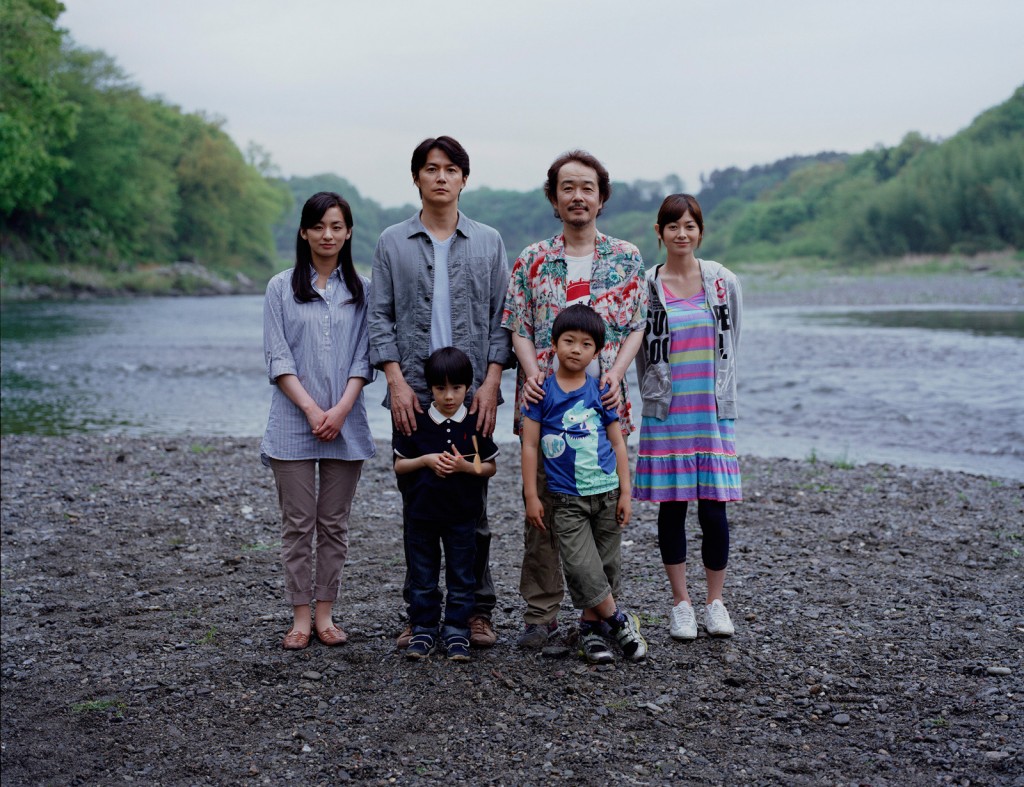Like Father, Like Son Review
Hirokazu Koreeda’s latest in a run of tender explorations of family dynamics rests on a rather unusual high concept, the idea of two children being swapped at birth in a hospital and the error not being discovered until much later. The two children, six year-old boys named Keita and Ryusei, have had very different experiences in their formative years and it is not surprising that Like Father, Like Son touches on the oft returned to theme of nature vs. nurture, but that is not the main concern of this sublime and tender human drama.
Opening with an interview sequence in which Keita is vetted for entrance into a highly exclusive school, we hear Keita relate a rather sweet story of his father, Ryota Nonomiya (Masaharu Fukushima) taking him camping and kite flying. As Keita, Ryota and Midori (Machiko Ono), Keita’s mother and Ryota’s wife, leave the school having seemingly impressed the school judges it is revealed that the story is a lie, something that Keita was told to say when he was prepped for the interview.
Ryota is not the kind of father who takes his son camping. A highly driven architect Ryota has little time for his son and what time he does have is spent pushing him, preparing him for a future career. It’s obvious that he cares for his son but clearly thinks that his role is to ensure that his son is a success. Keita does not quite appear to be his father’s son though – Keita’s is more than happy to not win at everything he sets his mind to and takes pleasure in other’s achievements – and when Ryota finds out that he actually isn’t his son he seems to see another chance.
The other family, who have been bringing up the Nonomiya’s son thinking it was theirs, are very, very different. The father, Yudai (Franky Lily), is a bit of a slob and seems to care little about career aspirations, but he spends a lot of time with his family and puts an emphasis on having fun and shared experiences. As the two families begin to intermingle, they decide to exchange the boys for weekends on a trial basis, each family gets a chance to see a different way of living. Most significantly, in the context of the film, each boy and father gets to experience an alternate relationship.
The Japanese title of Like Father, Like Son is reportedly something closer to ‘Then One Becomes a Father’ and it is clear from that and what we see in the film’s final scenes that Koreeda leans more towards Yudai’s approach than Ryota’s and the open-ended but also somewhat resolved final sequence involving both families is a hopeful and heartbreaking glimpse into a happier future.
Koreeda continues to excel with Like Father, Like Son in developing a thought-provoking and emotionally engaging film out of delicate observational drama. With unfussy cinematography and an effective use of flowing classical compositions Koreeda has crafted a sublime humanist drama. A masterwork of beautiful simplicity.
